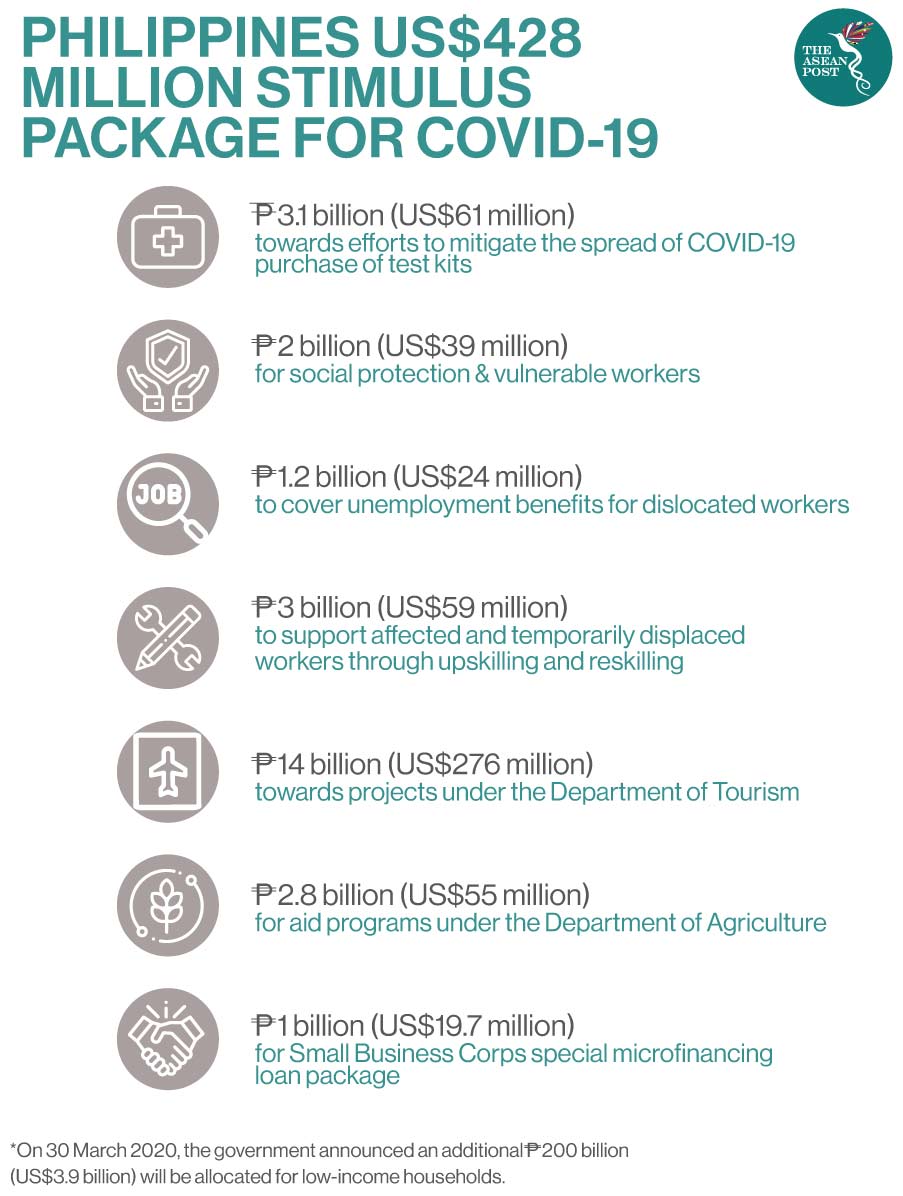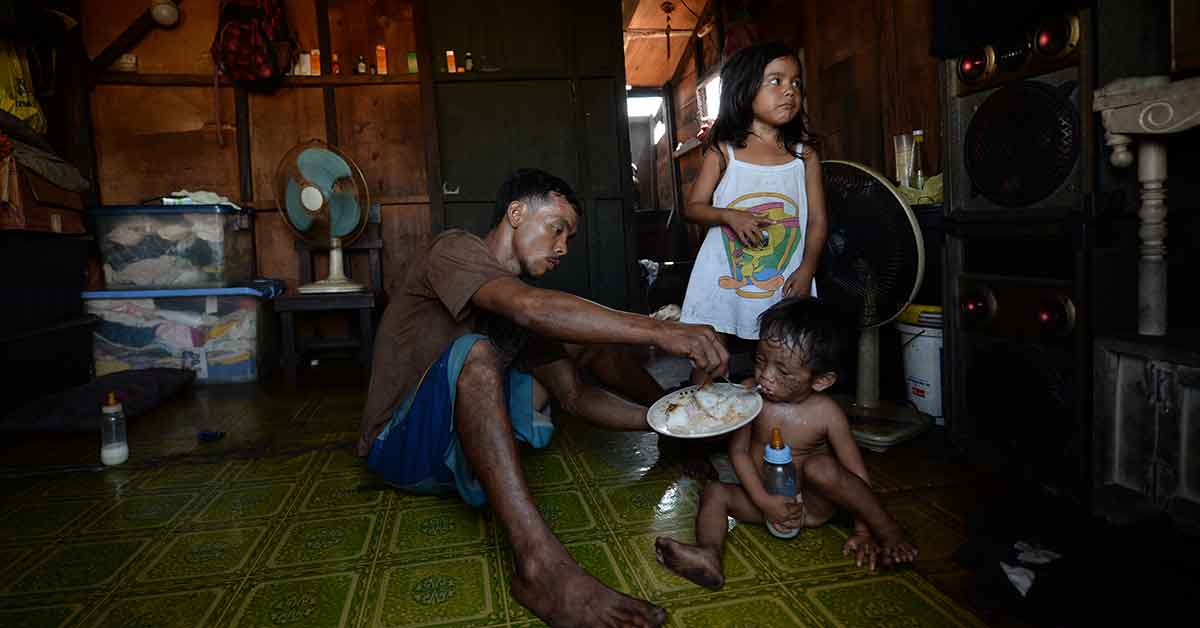In its fight to contain the novel coronavirus pandemic, the Philippine government’s move to decongest the National Capital Region (NCR) through its Back to the Province (Balik Probinsya) Program has become a key strategy. The NCR or Metro Manila, with a limited land area of around 636 square kilometres, is home to around 11 million dwellers. President Rodrigo Duterte signed the Executive Order (EO) No. 114, “Institutionalizing the Balik Probinsya, (Back to the Province), Bagong Pag-Asa (New Home) Program as a Pillar of Balanced Regional Development on 6 May, 2020.
A critical look at Metro Manila reveals that it is a metropolitan area overwhelmed by massive slums packed with many people living in houses with only “elbow to elbow” room. This depressing picture is unsettling. It is a known reality that shanties and slums are susceptible to, and more often than not, are “breeding grounds” of contagious and deadly diseases. These kinds of diseases exhibit high rates of infection in shanty places due to several factors, such as unsanitary conditions, lack of basic health care facilities, lack of reliable and functional sanitation facilities and services, congestion, malnutrition, and lack of other basic needs. The likelihood that COVID-19 will invade, plague, and overwhelm these areas is not a distant possibility. It is already happening and that’s something worrisome and alarming.
Likewise, these shanty communities, are also the “breeding grounds” of social problems like crime, drugs, addiction of different sorts, alcoholism, gambling of various sorts, poverty, and unemployment. Not that these social troubles can’t be seen in gated communities and subdivisions, because that’s not the case. But the propensity and frequency of occurrence of these social and health-related problems are heightened and more likely to take a foothold and traction in slums than in non-slum areas. The multifarious impact and damage to the environment that massive urbanisation and overpopulation in metro cities like the NCR due to traffic jams, rubbish, air pollution, water pollution, and the like, also needs the attention of city governments and the national government as well.
The living conditions in Metro Manila are not “picture perfect” and rather staggering to behold. The ever-dismal condition of the “shanties”, since time immemorial, is an enormous challenge to the government and to its inhabitants alike. And now with the COVID-19 pandemic, these problems have been magnified. The challenge posed to the government is gargantuan. It is against this backdrop that the “Balik-Probinsya Program” becomes more relevant.

The program basically aims to assist people who are stranded in the NCR because of the “lockdown” to go back to their home provinces. The implementing arm of this program is the “Balik Probinsya, Bagong Pagasa” Council which will be headed by the Executive Secretary, to be assisted by the Secretary of the National Economic and Development Authority (NEDA) as the vice-chair. The other members of the council include the secretaries of the interior and local government, social welfare and development, agriculture, agrarian reform, trade and industry, labour and employment, health, information and communications technology, finance, budget and management, public works and highways, transportation, tourism, human settlements and urban development, environment, and education.
Applications for the program is coordinated by the Department of the Interior and Local Government (DILG), while the Department of Transportation (DoTR) will provide the means of transportation. The National Housing Authority (NHA) provides the staging area, and the Department of Health (DOH) ensures that testing and quarantine protocols are followed before allowing people to go home to their respective provinces from the NCR to prevent the spread of the COVID-19 virus.
According to Presidential Spokesperson Harry Roque, the short-term goals of the program include the provision of financial and non-cash assistance, temporary lodging, daily sustenance allowance, and transportation to facilitate the movement of people from the NCR to the provinces, including those who are stranded in Metro Manila because of the enhanced community quarantine (ECQ) or lockdown. The long-term goal of the program is a policy shift to make way for countryside development, including the creation of new economic zones or urban centres in provinces to ensure balanced regional development. The Philippine government is looking at the program as one of its possible long-term solutions in its response to the COVID-19 pandemic and other similar crises in the future.
In this time of pandemic, the government’s “Balik Probinsya, Bagong Pag-Asa” Program becomes all the more relevant. It is essential that the government ensures the success of this program as it has the potential to make a difference in the lives of Filipinos living in the NCR. It will bring forth some breathing space to the already heavy laden, massively urbanised, and overpopulated Metro Manila. It is hoped that the government will exert real effort to develop the provinces and the country’s regional hubs and centres by taking into account economic, social and infrastructure needs.
It's about time that megacities like Metro Manila are gradually decongested as the current unhealthy living conditions there are simply not sustainable in the long run. While the government should have been more proactive than reactive and undertaken such a policy long before the COVID-19 pandemic, it is commendable that it (the government) is now taking the problem seriously.
The “Balik Probinsya” program if successful, will definitely help improve the living conditions of the inhabitants of Metro Manila. It can also serve as one of the most potent strategies of the Philippine government in its battle to defeat the COVID-19 virus.
Related articles:

